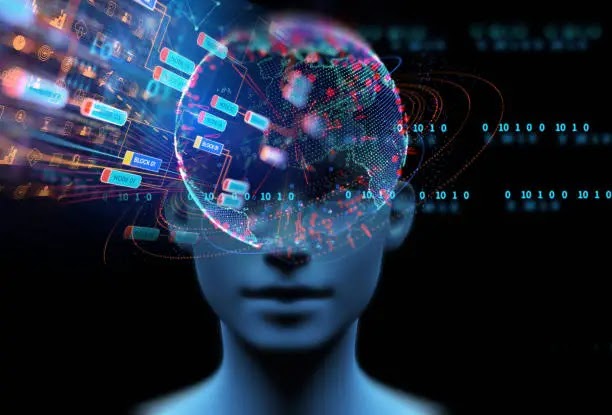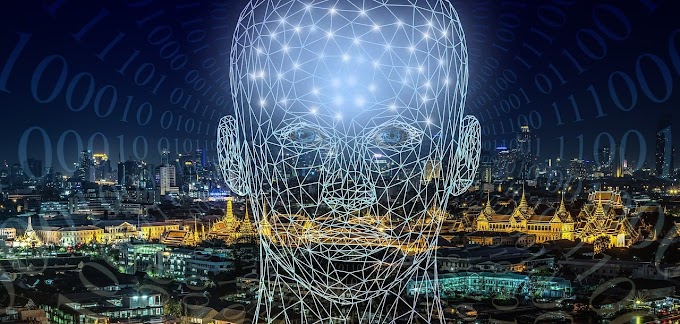Uncovering Risks and Dangers in AI
In our rapidly evolving digital world, the rise of artificial intelligence (AI) is nothing short of revolutionary. AI's transformative potential is evident in its diverse applications, from healthcare and finance to transportation and entertainment. Yet, beneath this technological marvel lies a realm of risks and dangers that demand our attention and understanding. In this article, we embark on a journey to explore the uncharted waters of AI, highlighting the hidden dangers, ethical dilemmas, and responsibilities that come with unleashing this powerful force.
Understanding AI
In the journey to uncover the inherent dangers and risks within AI, it is critical to begin with a comprehensive understanding of what this transformative technology entails. Artificial intelligence, or AI, is the simulation of human intelligence in machines, giving them the ability to perform tasks that normally require human thought processes, such as learning, problem solving and decision making. .
This definition underpins our exploration of the potential dangers and risks involved in the complex landscape of AI. To understand the gravity of these threats, one must understand the various forms of AI, from machine learning algorithms that predict user preferences to autonomous robots that navigate complex environments.
As we delve deeper into the murky waters of AI, this understanding becomes our guiding light, helping us uncover the multifaceted risks and dangers that often lie beneath the surface of AI's transformative promise. Stay hidden. With this knowledge in hand, we embark on a journey to uncover the dangers and ethical dilemmas that come with this extraordinary technology.
The promise and potential of AI
In the world of technology, the promise and potential of Artificial Intelligence (AI) are nothing short of awe-inspiring. AI holds the key to transformative advancements across various domains, offering a myriad of benefits to society. It enhances efficiency, boosts productivity, and revolutionizes convenience. AI-powered healthcare applications are at the forefront, enabling early disease detection and personalized treatment plans, potentially saving countless lives. Autonomous vehicles driven by AI promise safer and more efficient transportation, reducing accidents and traffic congestion.
However, this promise comes with a caveat – a growing awareness of the associated risks and dangers. While AI's potential to augment human capabilities is undeniable, the uncharted waters it navigates require us to scrutinize the ethical implications, data privacy concerns, and the displacement of jobs it might entail. As we embrace AI's potential, it's imperative to tread carefully, understanding the multifaceted nature of the risks and dangers it brings.
Hidden dangers
Beneath the glossy surface of AI's promise lie hidden dangers that demand our attention. One of the most insidious threats is the risk of cyberattacks. With AI's growing influence, cybercriminals have a powerful tool at their disposal, capable of automating and enhancing their malicious activities. From data breaches to manipulating decision-making processes, the potential for AI-driven cyber threats is ever-present.
Moreover, the misuse of AI technology poses another peril. Deepfake videos, for instance, can convincingly fabricate events and individuals, eroding trust and manipulating public perception. Autonomous weapons, driven by AI, raise grave ethical and security concerns. These hidden dangers underscore the urgency of responsible AI development and regulation, emphasizing the need for robust cybersecurity measures to protect against evolving threats as we navigate the uncharted waters of AI.
Dangers Lurking Beneath
In the realm of AI, a host of dangers lies hidden beneath the surface, often escaping immediate notice. Chief among these is the ever-present specter of cybersecurity threats. Malicious actors, equipped with advanced AI tools, can exploit vulnerabilities in systems, leading to data breaches, identity theft, and even infrastructure attacks. This creates a palpable risk to individuals, organizations, and governments alike.
Moreover, the misuse of AI technology poses a significant peril. Deepfake technology, for instance, allows the manipulation of audio and video, potentially leading to the dissemination of false information, undermining trust, and sowing discord. Additionally, autonomous weapons, driven by AI, raise ethical and existential concerns, as they could make life-and-death decisions independently.
It is imperative to navigate these treacherous waters with caution, implementing safeguards and ethical guidelines to mitigate the inherent dangers of AI, ensuring that it remains a force for progress rather than peril.
The human element
In the intricate landscape of AI, the human element plays a pivotal role in shaping the course of its risks and dangers. While AI itself is a tool, its applications and consequences are profoundly influenced by human decisions and actions. The responsibility falls on developers, policymakers, and society as a whole to ensure the ethical and responsible use of AI.
Developers shoulder the responsibility of designing AI systems with fairness, transparency, and accountability in mind. By building ethical AI models, they can mitigate biases and reduce the potential for harm. Policymakers play a crucial role in establishing regulations and guidelines that promote the safe and responsible use of AI, thereby safeguarding against its misuse.
Moreover, the broader society must engage in ongoing conversations about the implications of AI, its ethical dilemmas, and the need for transparency. By recognizing that AI's risks and dangers are not solely a result of technology but also of human choices, we can collectively work towards a safer and more responsible AI-driven future.
Navigating uncharted waters
Navigating the uncharted waters of AI's risks and dangers is akin to embarking on a profound journey into the unknown. As we delve into the realm of artificial intelligence, it becomes evident that while its potential is limitless, so are the challenges it poses. The uncharted waters symbolize the unexplored territories of privacy invasion, ethical dilemmas, and potential societal disruption.
In this ever-evolving landscape, our compass must be guided by responsibility, awareness, and a commitment to ethical development. The waves of innovation are intertwined with the currents of risk, making it imperative for society to collectively chart a course that safeguards our digital future. Through vigilance, informed decision-making, and a dedication to ethical principles, we can not only unveil the hidden dangers but also navigate these uncharted waters to harness AI's transformative power for the betterment of humanity..
Case studies and examples
To truly comprehend the tangible implications of the risks and dangers in AI, let's delve into real-world scenarios. Consider the infamous Cambridge Analytica scandal, where personal data from millions of Facebook users was exploited for political manipulation using AI-driven algorithms. This eye-opening case underscores the peril of data privacy breaches and the potential for AI misuse.
Furthermore, AI-generated deepfake videos have raised concerns about their potential to deceive and manipulate. In 2020, a Belgian political party used deepfake technology to create a convincing video of the Belgian Prime Minister endorsing a climate change denial statement. These examples shed light on how AI can blur the lines between reality and fiction, posing threats to trust and authenticity.
These case studies serve as cautionary tales, urging us to navigate the uncharted waters of AI with vigilance and ethical foresight.
Looking to the future
As we gaze toward the horizon, the future of AI unfolds with both promise and uncertainty. Technological advancements are poised to reshape industries, augment human capabilities, and further intertwine AI with our daily lives. However, the road ahead is not without challenges.
To address the omnipresent risks and dangers in AI, vigilance is paramount. Anticipating potential risks is essential, for with each new AI breakthrough, novel vulnerabilities may emerge. It is imperative to adapt our strategies for risk mitigation and ethical development, ensuring that AI continues to be a transformative force for good in our ever-evolving digital landscape.
Ultimately, as the uncharted waters of AI continue to reveal their complexities, it is our collective responsibility to shape the course of this remarkable journey, ensuring that the benefits of AI are harnessed responsibly and ethically, safeguarding a brighter future for all.
At the END
In our journey through the uncharted waters of AI, we've uncovered the multifaceted landscape of risks and dangers lurking beneath the surface. While AI holds the potential to revolutionize our lives, we must recognize the importance of responsible development, governance, and ethical considerations. Only through a collective effort can we navigate these uncharted waters and ensure that AI continues to be a force for good in our ever-evolving digital world.
(Thanks for your valuable time)







